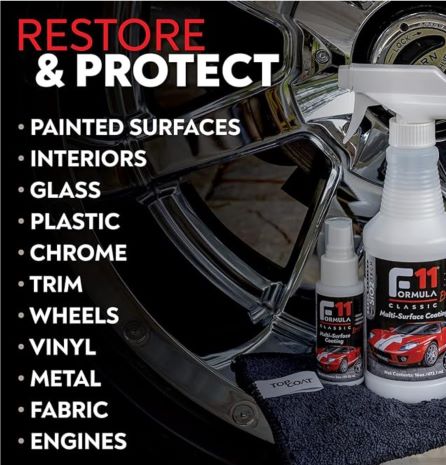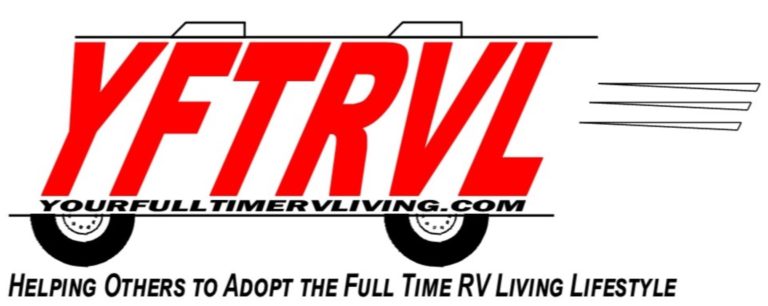Fluid Analysis For RV Technicians – An Additional Income Source
Navigating the Current Market for RV Technicians
- Overview of the RV industry and the rising demand for technicians
- The importance of staying ahead in a competitive job market
- Identifying additional income streams for RV technicians
The RV industry is booming, with more people embracing the freedom and adventure of RV life. Whether it’s retirees exploring the country or families seeking memorable vacations, RVs are in high demand. With this continued surge, the need for skilled RV technicians has never been greater. Keeping up with this competitive market means finding ways to stand out and provide valuable services.
For RV technicians, it’s crucial to stay ahead of the game. The more skills and services you can offer, the more attractive you become to RV owners. Identifying additional income streams not only boosts your earnings but also solidifies your reputation as a go-to expert in RV maintenance. One such service that’s gaining traction is fluid analysis.
As an RV technician, you already have a lot on your plate, from handling repairs to performing regular maintenance checks. But what if there was a way to boost your income without adding a ton of extra work? Enter fluid analysis – a valuable service that can set you apart and add to your bottom line.
What is Fluid Analysis?
Imagine your RV is like a human body. Just as doctors use blood tests to check for health issues, you can use fluid analysis to check the health of an RV. Fluids like engine oil, transmission fluid, coolant, and even fuel can tell you a lot about the condition of the vehicle. Analyzing these fluids allows you to spot potential problems early and keep the RV running smoothly.
Fluid Analysis in RV Maintenance – A Lucrative Skill
- What is fluid analysis and its role in RV maintenance
- The benefits of offering fluid analysis services
- How fluid analysis can extend the lifespan of RV components
So, what exactly is fluid analysis, and why is it essential for RV maintenance? Fluid analysis involves testing the various fluids in an RV, such as engine oil, transmission fluid, and coolant, to assess their condition. This analysis helps detect issues early, preventing costly repairs down the line.
Offering fluid analysis services has several benefits. First, it positions you as a knowledgeable technician who can provide comprehensive care for an RV. Second, it gives RV owners peace of mind, knowing their vehicle is in top condition. Lastly, fluid analysis can significantly extend the lifespan of critical RV components, saving your customers money in the long run.
Why Offer Fluid Analysis?
1. Preventive Maintenance: Just like getting regular check-ups can prevent serious health issues, regular fluid analysis can prevent major mechanical problems. This means fewer breakdowns and costly repairs for your clients and more trust in your services.
2. Increased Customer Satisfaction: Offering fluid analysis shows your customers that you go the extra mile to take care of their RVs. When they see that you’re proactive about their vehicle’s health, they’re more likely to stick with you and recommend your services to others.
3. Additional Revenue Stream: Fluid analysis is an upsell opportunity. For a small additional fee, you can provide a detailed report on the state of the RV’s vital fluids. This can add up over time, significantly boosting your income. There are RV inspectors and technicians making a few thousand extra dollars a month by offering fluid analysis services!
Breaking Down the Fluids
Here’s a simple breakdown of the main fluids you can analyze and what they can tell you. Once a sample is pulled from an engine by an RV technician and sent to the lab, these are the results that the sample analysis will reveal:
1. Engine Oil (engine and generator):
- What to Look For: Metal particles, soot, and viscosity changes.
- What It Means: Metal particles could indicate engine wear, while soot could mean incomplete combustion. Viscosity changes can point to contamination or oil degradation.
2. Transmission Fluid (motor home and tow vehicle):
- What to Look For: Color, smell, particle presence.
- What It Means: Dark or burnt-smelling fluid can indicate overheating or worn-out parts. Particles might suggest internal damage.
3. Coolant (engine and generator):
- What to Look For: pH levels, debris, color changes.
- What It Means: Low pH can cause corrosion, while debris can block the cooling system. Color changes can indicate contamination or aging coolant.
4. Fuel:
- What to Look For: Water, dirt, and other contaminants.
- What It Means: Water and dirt in the fuel can lead to poor engine performance and damage.
Step-by-Step Guide to Implementing Fluid Analysis Services
- Training requirements for RV technicians on fluid analysis
- Investing in the right tools and equipment
- Adding fluid analysis to your service menu and pricing strategies
1. Training Requirements for RV Technicians on Fluid Analysis
Before diving into fluid analysis, you’ll need to get the proper training. Look for courses or workshops that focus on fluid analysis for vehicles. Many are available online and can be completed at your own pace. These courses will teach you how to collect fluid samples, interpret the results, and recommend necessary actions based on your findings.
2. Investing in the Right Tools and Equipment
To offer fluid analysis services, you’ll need some specialized tools and equipment. This includes fluid sampling kits and vacuum pumps, that’s it! The initial investment is not very much, and the return on investment can be substantial as you attract customers seeking this service. You can visit this website to order what you need and to get the necessary training to collect fluid samples.
Once you have the right tools you will be ready to assist clients with this valuable service. All you need to order are oil kits, coolant kits, and a red and blue vacuum pump to extract fluids from the client’s vehicle,
You can see videos on how to collect fluid samples from this website.
3. Adding Fluid Analysis to Your Service Menu and Pricing Strategies
Once you’re trained and equipped, it’s time to add fluid analysis to your service menu. Clearly list it as an option alongside your other services, and make sure to highlight its benefits. When setting your prices, consider the cost of the equipment and your time. It’s also a good idea to offer package deals, combining fluid analysis with other maintenance services to provide better value for your customers.
Marketing Your New Fluid Analysis Service Successfully
- Developing a value proposition for your fluid analysis service
- Targeting and reaching out to your ideal RV customer base
- Measuring success and refining your fluid analysis offerings
1. Developing a Value Proposition for Your Fluid Analysis Service
To market your new service effectively, start by developing a strong value proposition. Explain why fluid analysis is crucial for maintaining an RV’s performance and longevity. Emphasize how early detection of issues through fluid analysis can prevent major repairs and keep the RV running smoothly.
2. Targeting and Reaching Out to Your Ideal RV Customer Base
Identify your ideal customers – those who are most likely to benefit from fluid analysis. This could be full-time RVers, families who frequently use their RVs, or even rental companies looking to maintain their fleets. Use social media, your website, and email newsletters to reach out to these groups. Share informative content about the benefits of fluid analysis and how it can save them time and money.
3. Measuring Success and Refining Your Fluid Analysis Offerings
Once you’ve started offering fluid analysis, it’s important to track your success. Keep records of how many customers are opting for this service and gather feedback. Are they satisfied with the results? Do they see the value in what you’re offering? Use this information to refine your service, adjust your pricing if necessary, and improve your marketing strategies.
Conclusion
Incorporating fluid analysis into your range of services can be a game-changer for your RV technician business. It not only adds a valuable offering that sets you apart from the competition but also helps you build stronger, trust-based relationships with your customers. By staying ahead of market trends and continuously improving your skills, you can ensure your place as a top-tier RV technician while boosting your income. So, why not take the plunge and add fluid analysis to your repertoire? Your customers – and your bottom line – will thank you.
To learn more about us, click here!
Please leave a comment below before you check out the rest of our site.











Recent Comments